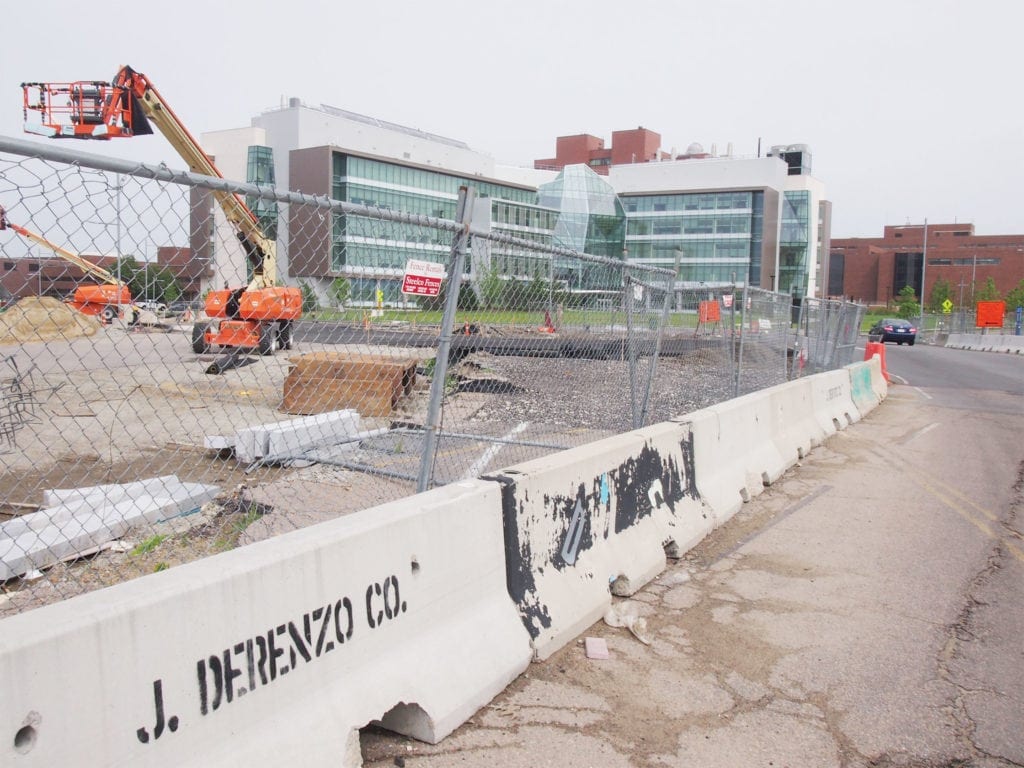
An ongoing budget crisis at University of Massachusetts’ Boston campus was caused not by the leadership of the campus’ former chancellor Keith Motley, but by the UMass Board of Trustees, according to a report released Thursday by the Pioneer Institute.
The report explains that the nearly $30 million budget deficit reported by the campus in fiscal year 2017 was actually due to an instruction by the statewide university system’s central office for the campus to replenish $25.3 million of its primary reserves after the board made a mistake in its financial projections.
“The UMass Board of Trustees, president and Central Office approved a rapid capital expansion program at UMass Boston and failed to plan for, provide and keep track of the primary reserve funds necessary to pay for it,” the report states. “When they realized their mistake mid-year in FY2017, the crisis was triggered.”
UMass Boston is in the midst of a major expansion and renovation of its campus as part of a Campus Master Plan first implemented in 2009. Funding for the most recent projects as part of this Master Plan was laid out in the university’s Capital Plan for fiscal years 2015-2019, and a five-year financial projection for fiscal years 2016-2020 indicated that by drawing on its financial reserves, the campus would be able to pay for these projects.
A later five-year financial projection for fiscal years 2017-2021 revealed that this was false. Only halfway through fiscal year 2017, long after approving the budget for that year, did the board realize that the campus would have just $28.1 million in its reserves that year (not $77.7 million as predicted in the previous projection) and $28.5 in fiscal year 2018. The board then asked the UMass Boston campus to contribute to the reserves to replenish them. The board made the request despite previously approving all withdrawals from the reserves, which were expected to go as low as $12.1 million for fiscal year 2018.
This replenishment made up the bulk of the $30 million deficit, which would have otherwise been just $1.1 million in 2017 and $2.5 million in 2018. The difference was reported as a “depreciation expense,” despite a depreciation expense already being factored into the budget.
In a statement to the UMass Boston community, Interim Chancellor Katherine Newman denied the statements made in the report, saying that the budget deficit was a result of poor financial management and decisions made by the campus and a lack of accountability for those decisions, and noting the author organization’s “political agenda.”
“These problems were real; they were not an illusion, a mistake, or an accounting error,” Newman said. “Collectively they pushed UMB’s reserves to dangerously low levels. Contrary to the Pioneer Institute report, we have never been ordered to replenish them. What the campus has been asked to do is bring the deficit down to zero, which has necessitated painful cuts that everyone wishes were not necessary.”
Newman also noted that all of the UMass system campuses have been asked to make changes in their finances to ensure that they are operating within a 2 percent margin by 2023.
Following the announcement of the $30 million deficit in 2017, the university’s Board of Trustees declined to extend Motley’s contract, forcing his resignation. UMass President Marty Meehan commissioned a report by audit firm KPMG LLP, and the report blamed Motley’s administration for the crisis.
In addition, the UMass Boston campus was forced to cut jobs, classes and other programs to make up the deficit.
At the same time, in spring of 2018, the Board of Trustees approved the UMass Amherst purchase of Mount Ida College, a $75 million annexation of the campus in Newton. This was widely criticized at the time as the university playing favorites between campuses while UMass Boston floundered.
“There is no aspect of this transaction that represents a discretionary use of resources that favors one campus over another,” Meehan said in a press release at the time. “UMass Amherst’s capacity to borrow these funds is wholly unrelated to UMass Boston’s capacity to borrow or fund its priorities.”
The new report, however, blames the woes of the UMass Boston campus on the board’s decisions.
“The UMass senior administration did not heed warnings coming from the Boston campus, and they bear ultimate responsibility for approving a massively unaffordable plan, then leaving UMass Boston alone to deal with the consequences,” the report says.






